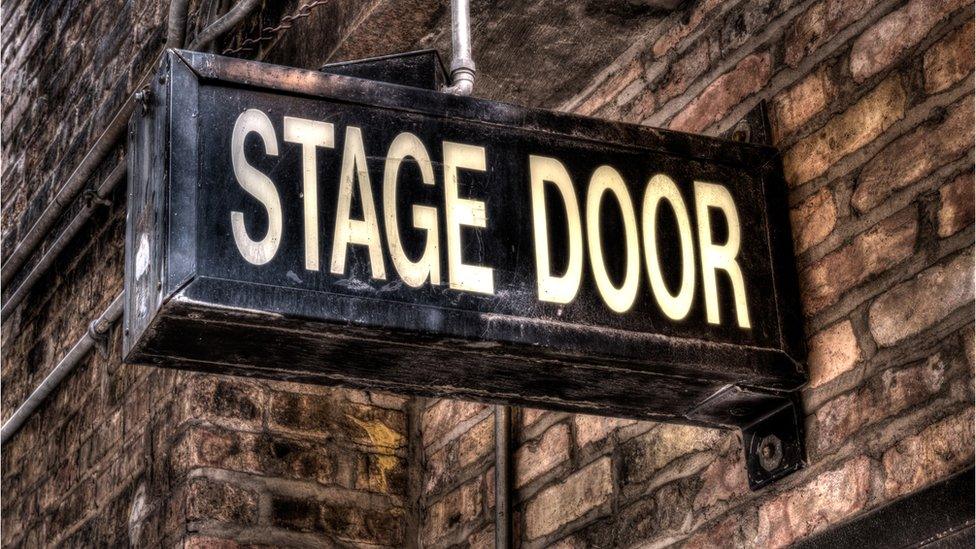Family's fight to save Cardiff's 'landmark' sculpture
- Published
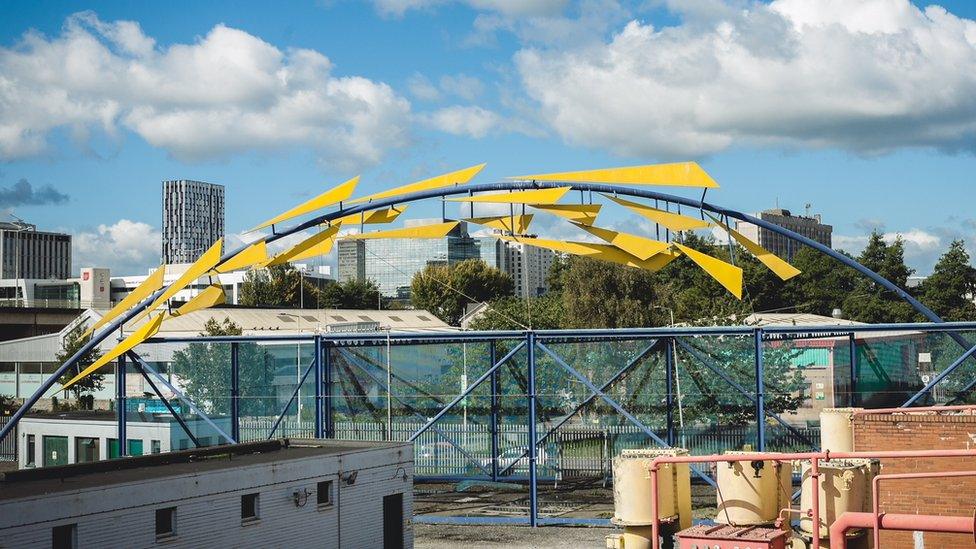
Part of the sculpture is built on an electricity substation
The family of an artist who created a "landmark" sculpture have been backed by hundreds of people in their campaign to save it.
Blue Flash Power Box and Meshchips was built on land now owned by Western Power Distribution in Cardiff Bay.
Zoe Gingell, daughter of late artist John, said it was threatened by work at the site, prompting a petition signed by almost 500 people in 24 hours.
The company said it wanted a solution the family would be happy with.
In 1994, the BBC Wales Arts Awards shortlisted the city sculpture that now faces an uncertain future
It added that the sculpture would not be demolished.
The artwork was commissioned in 1994 by the Cardiff Bay Arts Trust as part of the wider regeneration of Cardiff Bay,
Built on an electricity substation, it shows a smooth, bright red box, and above it a giant blue arc with darting yellow arrows representing a lightning flash and sparks.
Western Power wrote to the family last month to inform them they were considering whether to demolish the sculpture so that it could upgrade the substation.
Zoe Gingell, daughter of the artist who died in 2007, has asked Cadw to give the artwork the formal protection of an official listing.
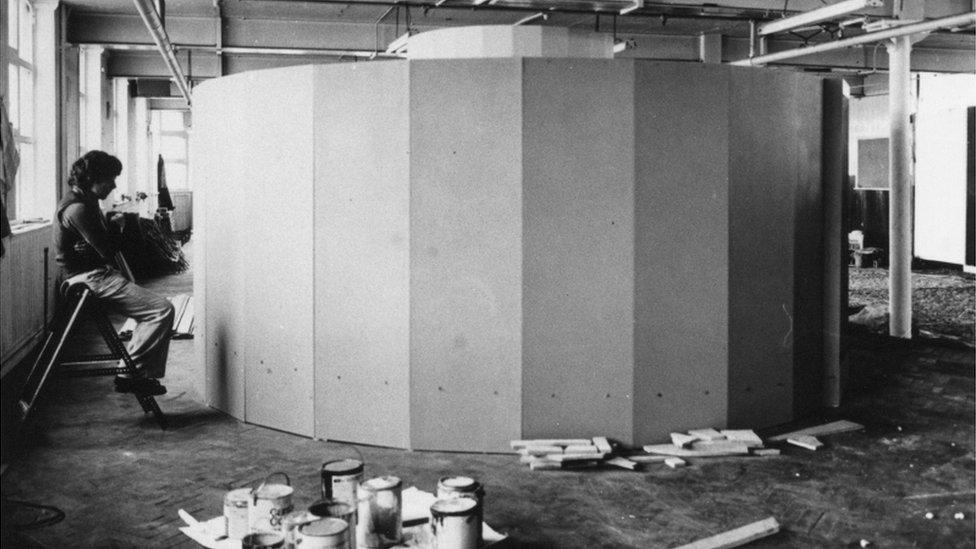
John Gingell, who died in 2007, at work on a different piece
Ms Gingell told BBC Wales: "The work represents not just the function of the site - to provide energy to the city - but stands as an iconic and dynamic piece that represents the vital energy of Cardiff itself."
A petition to save the sculpture gained almost 500 signatures in 24 hours.
Ms Gingell said the electricity company had a duty to listen to campaigners on the future of the "major landmark".
She said: "I think Western Power have an onus to take into account the views of the people of Cardiff who have responded to our campaign.
"They did ask us for our views, which of course were pretty clear: we don't want this demolished.
"Taking down just part of the work compromises the whole piece. They were conceived together to stand in relation to one another, as a visual piece. To remove or take down part of it will ruin the whole thing."
The leader of Cardiff council, Huw Thomas, has backed the campaign.
Allow X content?
This article contains content provided by X. We ask for your permission before anything is loaded, as they may be using cookies and other technologies. You may want to read X’s cookie policy, external and privacy policy, external before accepting. To view this content choose ‘accept and continue’.
Councillor Huw Thomas tweeted: "This comes as news to me. I'm disappointed by the company's failure to engage councillors thus far, and I will be making clear our objection to losing this important #Splott / #Butetown landmark. Meanwhile, please sign the petition!"
Despite being listed on Cardiff's public art register, it has no formal protection and is not protected by the heritage body Cadw.
'Exploring options'
Karen Welch, spokeswoman for Western Power Distribution, said it was exploring options with the family to find a solution they would be happy with.
She said: "We are looking to improve the electricity supply in the area, and we are presently in discussions with the family about the work that we need to do at our site.
"There are a number of possibilities we are considering - one is to re-erect the artwork at a nearby location, or alternatively attempt to incorporate it into our current work therefore maintaining its present location."
- Published21 June 2018
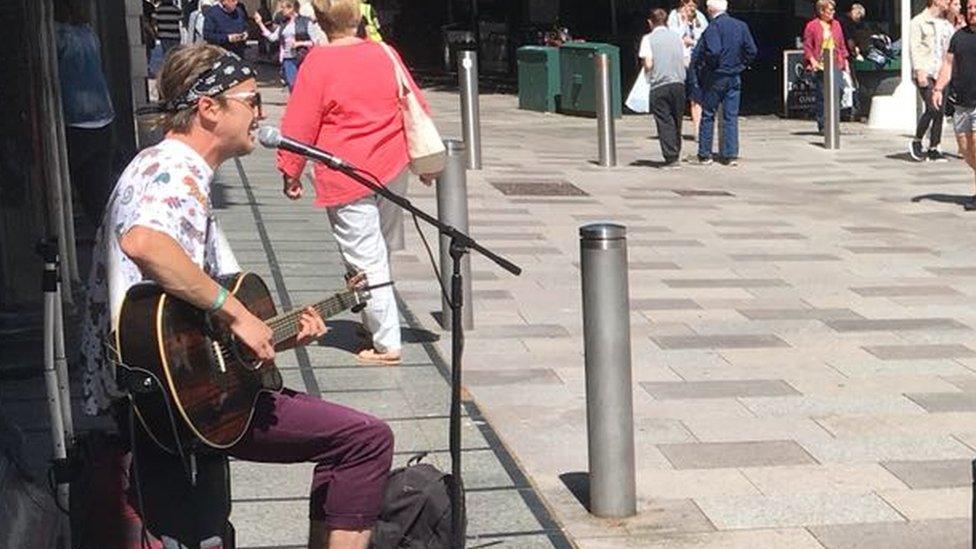
- Published23 September 2018
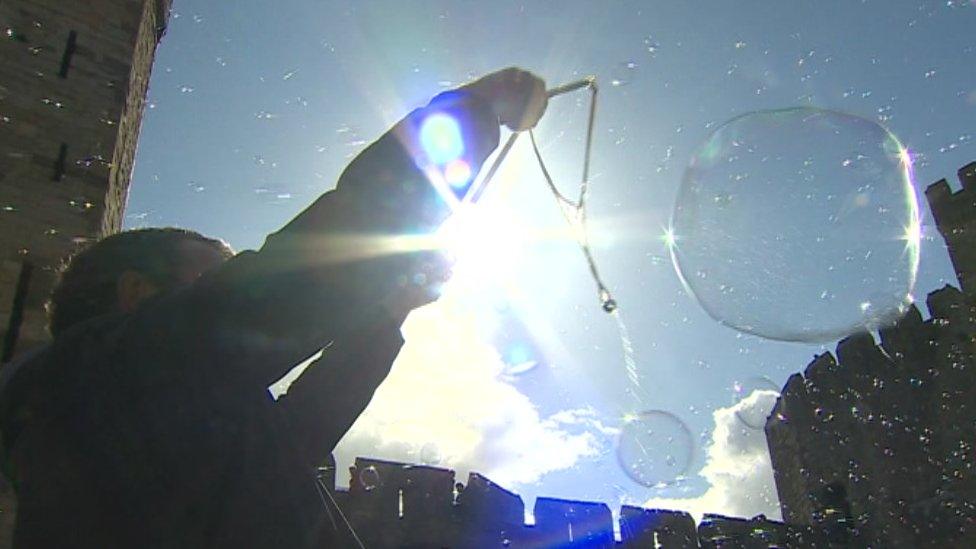
- Published24 September 2018
